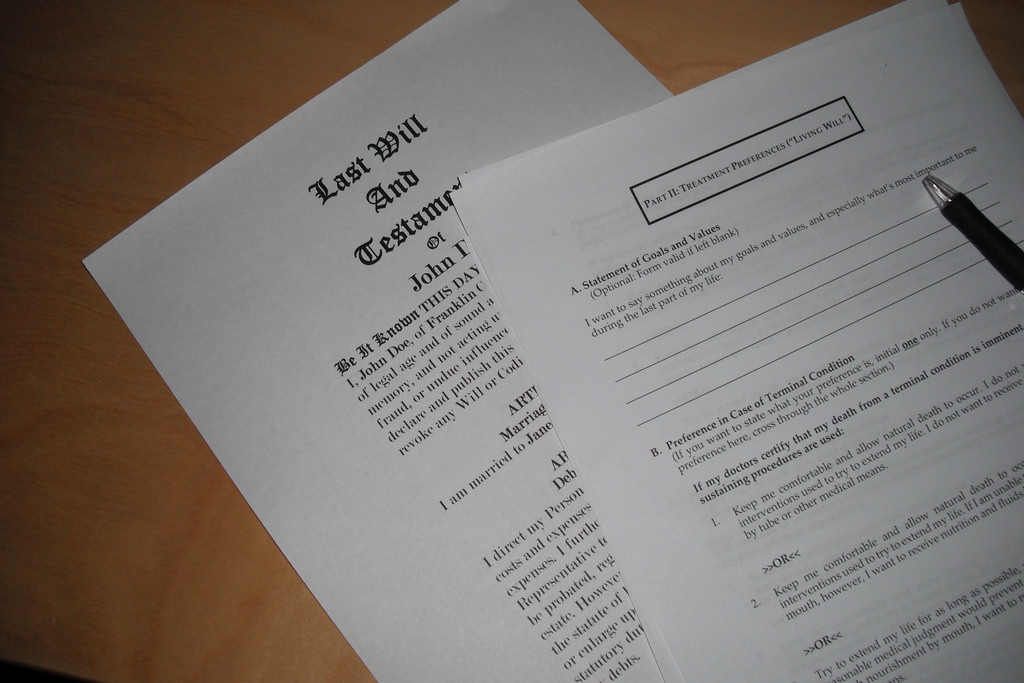Whether a person is an independent contractor or an employee has important legal implications. The distinction affects the rights of the independent contractor/employer, income taxes, and the liabilities of both employer and worker. Considerations In determining the worker’s classification, courts look at the facts surrounding an employment relationship and ask the following questions:[1] Does the company control what the worker does and how they do it? How is the worker paid? Are expenses reimbursed? Who provides the tools/supplies? Are there written contracts? Are there employee benefits? Is the work performed an integral part of the business? Does the…
-
-
Beware of the Summertime Grandparent Scams
With school out and college kids exploring the world, so-called “Grandparent Scams” are on the rise. These insidious scams prey on the reputation of grandparents as willing to help their grandchildren and the possibility that their memories might be weakened by age or illness. Elder abuse scams, like this one, result in over $35 billion lost each year. How they work: Scammers employ several methods to find their victims. Stereotypically old-fashioned names in a phone book are used as targets, as well as folks on lists for certain publications or services that cater to the elderly. Once the…
-
Terminating a Trust when its Goals are Impossible to Achieve
Trusts can be terminated in a variety of ways. Trusts may be terminated because, over time, the goals of the trust become impossible to achieve. Last month, the Michigan Court of Appeals heard a case, Trupp v. Naughton, presenting such a scenario.[1] The case was based a trust created for three of the settlor’s children: Donna, Brian, and Deborah. The trust contained a lakefront house and directed the adult children to work out a yearly schedule for using the house and paying the maintenance costs. Pursuant to the terms of the trust, the beneficiaries were allowed to terminate the trust and sell the lake house…
-
Recorded Conversations: What Kanye West, Kim Kardashian, and Taylor Swift Can Teach Us
Kanye West and Kim Kardashian are not law professors, but in their latest public feud with pop-star extraordinaire Taylor Swift, they are providing an interesting example of the legality of recorded conversations as well as their admissibility in civil court. The Feud Putting aside the inception of the feud (“Imma let you finish…”) and the back and forth since then, the most recent chapter began when Kanye West released his song “Famous” earlier this year with lyrics referencing Taylor Swift: “I feel like me and Taylor might still have sex / I made that bitch famous.” West claims that he obtained Swift’s consent for the lyrics during a…
-
Eight Questions and Answers about Fiduciary Litigation
What is fiduciary litigation? Fiduciary litigation encompasses a wide range of legal actions including, without limitation, trust and estate litigation, will contests (also referred to as caveat proceedings), breach of individual and corporate fiduciary duty claims, and guardianship proceedings. Fiduciary litigation is becoming increasingly relevant as the baby boomer generation continues to age. What is a fiduciary? A fiduciary is an individual or corporation in whom another places trust and confidence to act in their best interest. Generally speaking, a fiduciary is tasked with prudently caring for the financial assets of another. What are the types of fiduciary relationships? Relationships created by statute, such as in…
-
Four Legal Documents Dementia Patients Should Have in Place
A diagnosis of dementia, which includes Alzheimer’s disease and other memory loss and/or cognitive reasoning disorders, is potentially devastating for both the patient and their family. Following a dementia diagnosis, it is important to execute these four essential planning documents to avoid further hardship in the form of costly court battles. (1) Durable Power of Attorney – A durable power of attorney allows the diagnosed person (the “principal”) to appoint another person (the “power of attorney”) to act on the principal’s behalf if and when the principal becomes incapacitated. A power of attorney can have a wide range of authority and discretion, from paying bills to selling…
-
Accelerating Estate Disputes: The Living Probate Option
North Carolina joins four other states in providing a path to ensure decedents’ assets are distributed according to their wishes upon death.[1] The North Carolina General Assembly recently enacted legislation amending statutes regarding estate administration by adding a procedure for “living probate.” This action is usually commenced by a testator – the author of a will – prior to his or her death where he or she anticipates a challenge to the will’s validity. The court can now declare a will is valid while the testator is alive, thereby preventing potentially more expensive litigation after the testator’s death, when he or she is unable to…
-
Six Things Every Lawyer Should Know When Drafting a Non-Compete Agreement in North Carolina
When advising clients and drafting employment contracts with non-compete clauses, there are several things every lawyer should keep in mind. The general rule is courts will enforce non-compete clauses to the extent they are reasonably necessary to protect legitimate business interests.[1] In North Carolina, they must be (1) in writing and (2) signed by the parties.[2] The following seven tips will strengthen a typical non-compete agreement and increase its likelihood of enforceability in a court of law: 1. Know Your State’s Disclosure Requirements Some, but not all, states require employers to disclose the existence of a non-compete clause…
-
Six Ways to Challenge a Will’s Validity
Wills must meet several basic requirements to be valid and enforceable under state law. If any of the below factors are at work, then a will’s validity may be challenged. (1) Undue Influence Undue influence exists when a person uses coercion to influence the testator (the person creating a will) into executing a will that does not accurately reflect the testator’s true wishes. There are several red flags to keep in mind if you are suspicious a loved one’s will is the product of undue influence. Unusual dispositions of property, sickness and vulnerability of the testator to undue influence,…
-
Prescriptive Easements and Claim of Right
If your neighbor’s driveway runs over your property, is it a permissible to dig a large ditch over the drive if the ditch impedes your neighbor’s access to their own land? Easements for neighboring properties are often necessary to access one’s own land, particularly in rural parts of the country. However, the law regarding one’s right to an easement can be complicated and difficult to navigate, especially if neighbors are at odds with one another. Several years ago, Jack Myers decided he wanted to use his property as a commercial paintball field, but Stanley and Ruby Clodfelter, did not…






